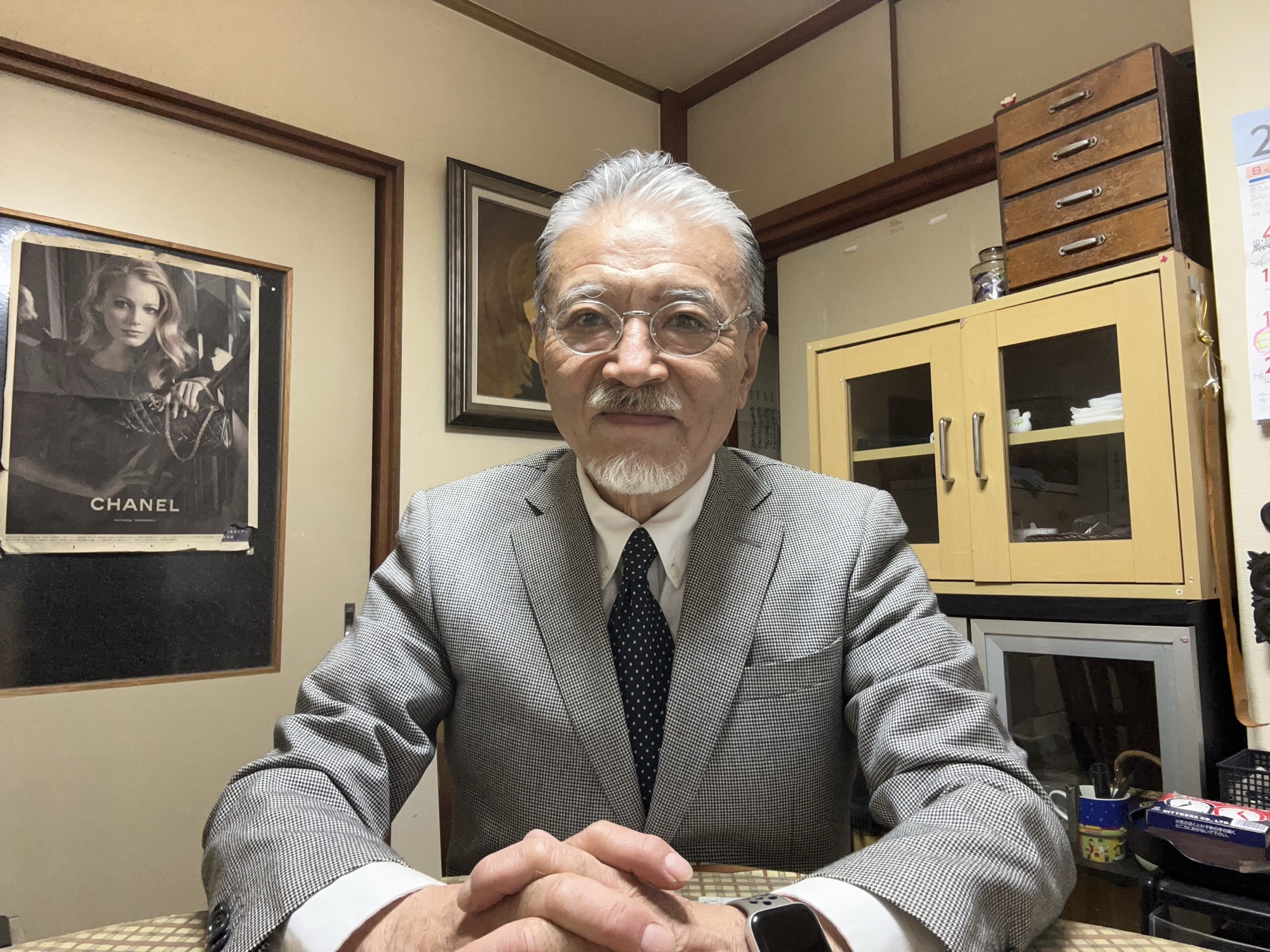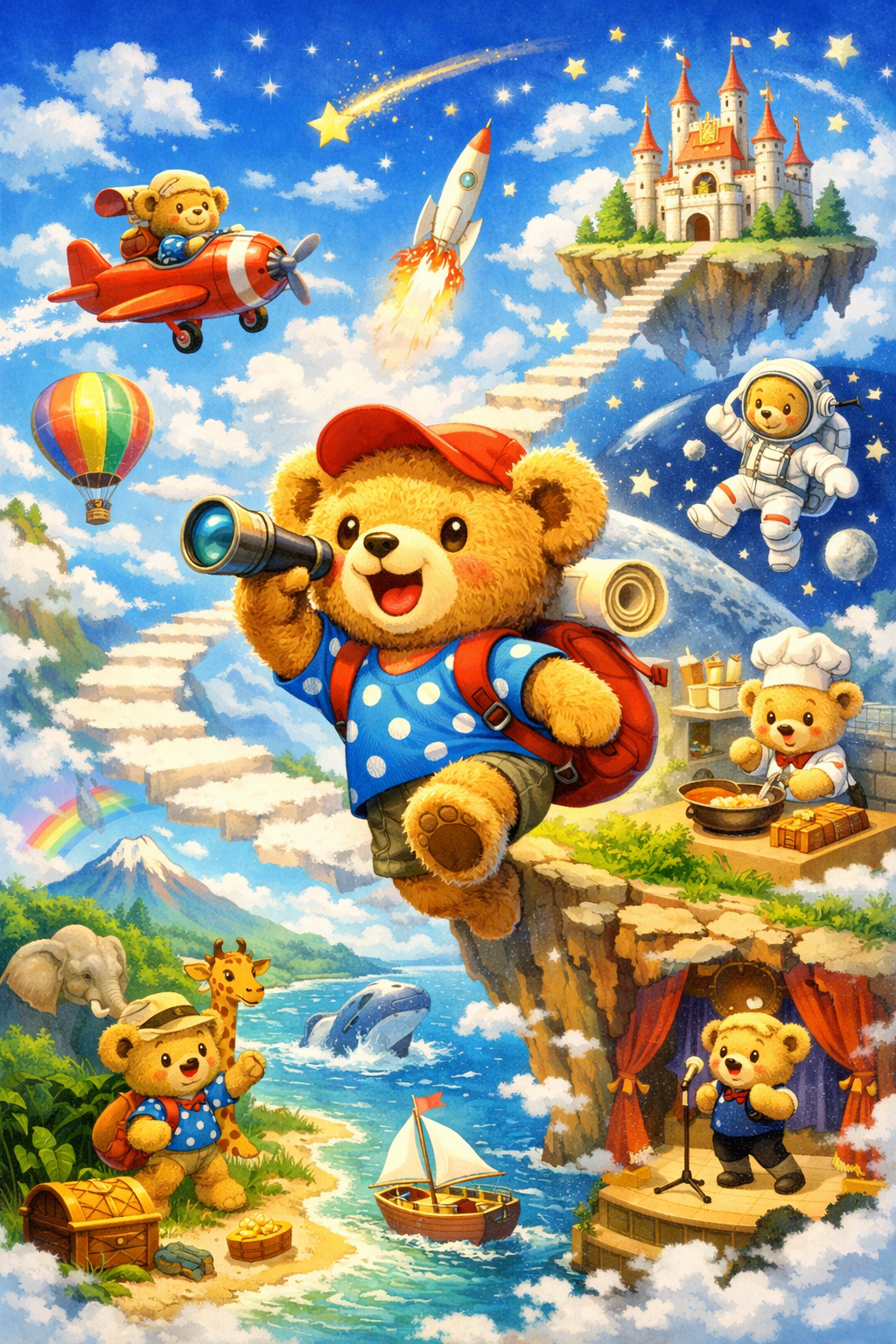I, Hara Yutaka, was born on April 26, 1955 in Toshima, Kita-ku, Tokyo, as the eldest son of my father, Hara Heihachi, and my mother, Hara Miyo. At the time of my birth, my father ran a geisha house called Ageha-ya, and I grew up surrounded by many people, including my father, mother, older sister, and geisha. My mother was born in Akashi-cho, Chuo-ku, and was working as a waitress at a restaurant called Urashima in Oji with her older sister when my father noticed her and married her as his second wife.
My father was born in Ashikaga, Tochigi, and came to Tokyo to become a Kabuki actor, winning an amateur Tokiwazu competition sponsored by the Tokyo Shimbun newspaper, and then studied under Tokiwazu Mojitayu and earned the qualification of Tokiwazu Komajutayu, and apparently he established Ageha-ya in the entertainment district of Oji via Komagome and Shinmei-cho, but it seems he bought the name Ageha-ya from a master of the hokan and taikomochi called Ageha-ya Gocho.
My father was born in the Meiji era and was a very strict man, who also seemed to put a lot of effort into the arts of the geisha.
I was 21 when my father passed away, and he was 73. I only saw. Western clothes once in my life, always wearing a loincloth, kimono, and geta.
He was a cute, short, old man with a shaved head, but he was kind and strict, and I loved him very much.
Looking back now, I realize that I was raised by my mother’s efforts, without ever being fooled by such a father.
I was surrounded by geisha and maids, who loved me as a child, and I spent my days being loved and cared for, so I spent every day being an honest child, without any inconveniences.
I also grew up in the 1950s, an environment full of hope and possibilities for the future after the post-war reconstruction, so I think I grew up in a fantastic era.
Because I was surrounded by a Japanese culture of a large, fine Japanese house with a garden, many tatami rooms, and the red-light district, I feel like I was born and raised in a special world that was different from the general life of the time, even though my everyday life was normal for me.
The local shopping district, kindergarten, school, and neighborhood association were just like the movie “Always Sunset on Third Street” and it was a good town with good children living there. Looking back, I think it was a good time moving towards hope and possibility.
My mother was from Tsukishima and Tsukuda and had relatives such as uncles and aunts, and she was loved by my father, who often came to visit.
Thinking back to kindergarten, I seem to have had a really mischievous childhood, but I think he was a well-behaved child, a spoiled youngster, and was well-behaved with her childhood friends.
僕、原豊は、父、原平八、母、原みよの長男として1955年4月26日に東京、北区の豊島という町に生まれました。生まれた当時、父は揚羽家という名の芸者の置き屋を経営しており父、母、姉と芸者衆と行った沢山の人がいる環境で物心をつくまでを過ごします。母は、中央区の明石町で生まれ、姉を連れて王子の浦島という料亭の仲居をしていたところを父にみそめられ、後妻として父のもとに嫁いだと聞いております。
父は栃木の足利の生まれで、歌舞伎役者を目指して東京に来て、東京新聞主催の常磐津のアマチュアコンクールで優勝し、その後、常磐津文字太夫氏に師事して常磐津駒寿太夫といった師範の資格を持ち、駒込、神明町を経由して王子の花柳界にて揚羽家を立ち上げたようですが、看板は、揚羽家五蝶という幇間・太鼓持ちの師匠から買っての立ち上げであったようです。
父は明治生まれの非常に厳格な人間で、芸者衆の芸にも力を入れていたようです。
私が、21歳、父は73歳の時に他界しますが、常にふんどし、着物、下駄といった姿で、父が、洋服を着たことを見たのは、生涯たった一度だけでした。
頭は坊主で、可愛く背の小さい、歳をとった、優しく、厳しい父でしたが、大好きな父でした。
今思うと、そんな父の下で愚れる事もなく育った私は、母の努力の中で育ってきたのだと実感します。
おばさんたちと言った立場の芸者集や、お手伝いさんといった人たちに囲まれて可愛がってもらっていた子供時代でしたので、何不自由なく素直にに子供として過ごしていた毎日でした。
また、時代背景も昭和30年代といった戦後の復興後の未来に向けた希望と可能性に満ちた環境であったように思うと射わせな時代の育ったと思います。
大きな、立派な日本家屋に庭、座敷の数も多く花柳界といった和の文化の中にいたせいもあり、私にとって当たり前の日常が、一般の当時の生活とは異なった特殊な世界に生まれ育ったように思います。
近所の商店街や、幼稚園、学校、町会と時代は、映画、“ALWAYS 三丁目の夕日“そのものの、良い子が住んでる良い町であったと今思うと本当に希望と可能性に向かって進んでいる良い時代であったと思います。
母は、月島、佃の人間で叔父貴や叔母といった親戚がありよく叔父が来た父との交流を持っていた中、可愛がっていただきました。
幼稚園の頃を考えると、本当にわんぱくな子供時代を過ごしていたようで、坊ちゃんとして幼馴染たちとも上品な子供達であったと思います。

アフリエイトを始めるなら!
誰でも簡単にブログ、ホームページが作れる…
目標達成への道は、こちら↓
http://createsomethingnewtogether.wordpress.com






